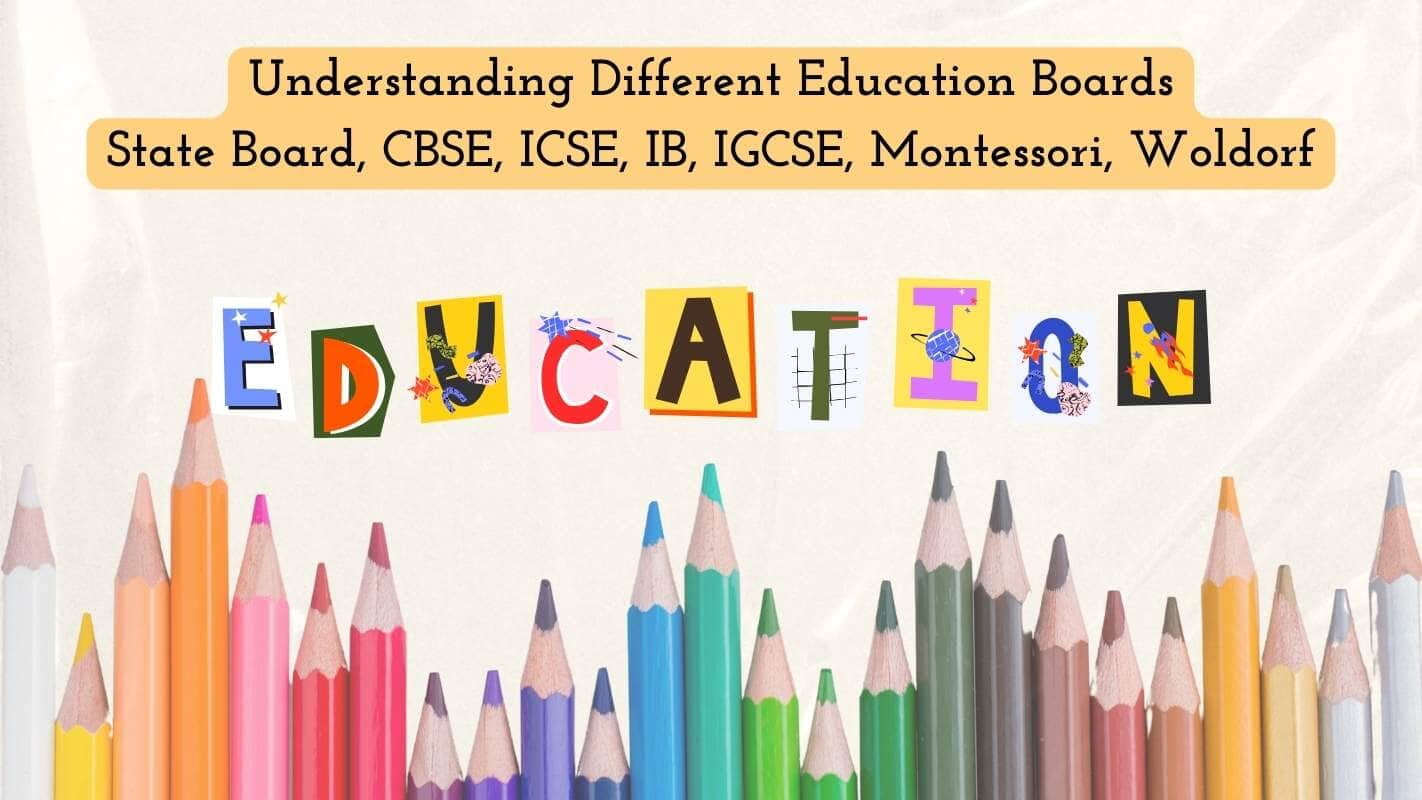
Understanding Different Education Boards: A Focus on Montessori Education
State Boards
- Curriculum customized to each state’s educational policies
- Emphasis on the regional language and context
- Varied syllabus across different states
- Uses NCERT textbooks, especially for higher classes, aligning with national standards
Central Board of Secondary Education (CBSE)
- Standardized syllabus with a strong focus on science and math
- English as the medium of instruction, ensuring accessibility for Indian and international students
- Commonly used in schools across India, facilitating transitions between schools across states.
The Role of NCERT Books
NCERT, the National Council of Educational Research and Training, provides textbooks that are widely adopted by CBSE and several State Boards across India. NCERT books are structured to make learning accessible, providing a solid foundation for competitive exams and higher studies. With their simplicity and affordability, they serve as core study materials in both national and many regional educational systems, enhancing educational equity and coherence.
Indian Certificate of Secondary Education (ICSE)
ICSE emphasizes a balanced education that includes humanities, languages, and arts, catering to students who seek a broader curriculum. The ICSE board encourages critical thinking, making it a good fit for students inclined towards in-depth academic exploration.
- Emphasis on English, humanities, and critical thinking
- Comprehensive coverage of arts, science, and commerce
- Fosters analytical skills and in-depth subject knowledge
International Baccalaureate (IB)
The IB board offers an internationally recognized curriculum with a holistic approach. Its programs encourage personal and academic growth, critical thinking, and global awareness.
- Inquiry-based, globally minded learning.
- Emphasis on both personal and academic achievement.
International General Certificate of Secondary Education (IGCSE)
IGCSE offers a flexible curriculum catering to international standards, emphasizing critical thinking and subject mastery.
- Globally recognized curriculum with a range of subjects.
- Emphasizes flexible learning paths.
The Psychological Impact of Grading and Comparisons
Research indicates that traditional grading systems can contribute to mental health challenges among students. Grades often become associated with a child’s self-worth, impacting self-esteem, especially when they feel compared to peers. Studies like those conducted by the American Psychological Association (APA) highlight that grading systems can increase anxiety, particularly in children who may view grades as a measure of their valuey from the University of Michigan found that students who experienced academic comparison through grades reported higher levels of stress and were more likely to associate grades with personal success or failure, impacting their self-esteem and mental well-being . ResearNational Institute of Mental Health also supports that excessive comparison and high expectations can lead to “performance anxiety,” where children fear failure and underperform due to pressure.
Montessori Education
Montessori education, the foundation of Dew Drops Academy, is a child-centered approach developed by Dr. Maria Montessori. This method emphasizes self-directed, hands-on learning, encourages children to progress at their own pace.
- Individual-paced, hands-on learning.
- Mixed-age classrooms, fostering collaboration and cooperation over competition.
- Focus on internal motivation and self-discipline.
Waldorf Education
Waldorf education, founded by Rudolf Steiner, emphasizes creativity, imagination, and practical learning, focusing on the child’s holistic development.
- Integrates academics with arts and practical skills.
- Emphasizes creativity and imagination.
Conclusion
In India, both State and Central boards largely rely on NCERT textbooks, emphasizing structured learning aligned with tests and exams. While boards such as IGCSE, IB, and other international options claim to foster advanced, inquiry-based, globally-minded education, the traditional grading systems they use still inherently introduce comparisons among students. Research by institutions like the American Psychological Association and the University of Michigan reveals that grading-based comparisons can adversely impact mental health, often linking a child’s self-worth to their grades, which increases anxiety and can lead to performance-related stress and self-esteem issues.
